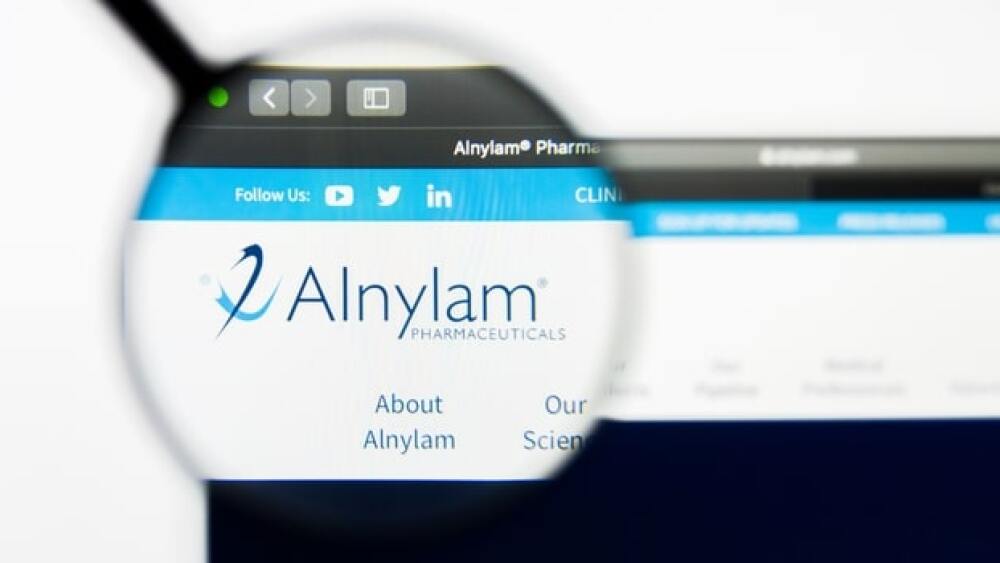Alnylam Pharmaceuticals shared 18-month results from its phase III Helios-A clinical study demonstrating that vutrisiran improves clinical cardiac symptoms in patients with hATTR.
Massachusetts-based Alnylam Pharmaceuticals shared 18-month results from its phase III Helios-A clinical study on Monday. The positive results demonstrate that vutrisiran improves clinical cardiac symptoms in patients with transthyretin-mediated hereditary (hATTR) amyloidosis. The news marks a positive turning point for the vutrisiran program, which experienced a manufacturing setback in April.
This analysis was gathered from patients who had pre-existing cardiac amyloid involvement, clinically presenting as a thickened left ventricular (LV) wall thickness greater than or equal to 1.3 cm. The normal range for this value is measured in millimeters. In comparison to the placebo group, an improved NT-proBNP level was observed. Additionally, improvements were seen through echocardiogram parameters such as cardiac output, LV wall thickness, LV-end diastolic volume and global longitudinal strain.
As a fatal hereditary disease, learning that hATTR runs in a patient’s family can be devastating news. According to the Amyloidosis Research Consortium organization, the disease is communicated as family members inherit a mutation in the transthyretin (TTR) gene. This gene is responsible for correctly producing TTR proteins and a mutation causes abnormal functionality, thus producing misfolded or unstable TTR proteins. Patients with hATTR can experience cardiomyopathic symptoms, gastrointestinal issues, autonomic neuropathy and/or peripheral neuropathy.
To interfere with the production of abnormal TTR proteins, vutrisiran is administered to patients subcutaneously. Vutrisiran’s formulation targets and silences the messenger RNA associated with the production of TTR proteins, which the company hopes will stop disease progression in its tracks.
The Helios-A study (NCT04153149) has 655 enrolled participants and has ceased recruiting in anticipation for a June 2025 completion date. Study design included randomization, quadruple masking and placebo controls. The 18-month results were first presented at the annual Heart Failure Association of the European Society of Cardiology, overlapping with today’s press release.
Rena N. Denoncourt, vice president and TTR franchise lead at Alnylam commented on the results.
“While the full clinical significance of these findings requires further evaluation, the 18-month exploratory results from HELIOS-A continue to support the potential for vutrisiran to reduce amyloid burden in the heart and suggest that patients with a high degree of cardiac amyloid burden may benefit from this investigational RNAi therapeutic,” she said. “We look forward to seeing data from the APOLLO-B and HELIOS-B studies, which are investigating the efficacy and safety of patisiran and vutrisiran, respectively, to treat the cardiomyopathy of wild-type and hereditary ATTR amyloidosis.”
An additional phase III Helios-B study is underway, investigating the efficacy of vutrisiran in patients with ATTR amyloidosis and cardiomyopathy, which includes patients with wild-type amyloidosis and hATTR. Wild-type amyloidosis negates the hereditary element of amyloidosis, and the disease develops with age. This placebo-controlled study has multiple global sites and 164 enrolled participants.
Variations and mutations of the TTR gene are still being discovered. As the number of known variants increases, as does the importance of vutrisiran’s ability to manipulate the gene.
The U.S. Food and Drug Administration accepted a New Drug Application for vutrisiran in ATTR amyloidosis on June 24, 2021. While the initial PDUFA date was April 14, delays relating to a third-party secondary packaging and labeling facility delayed that by 3 months.





